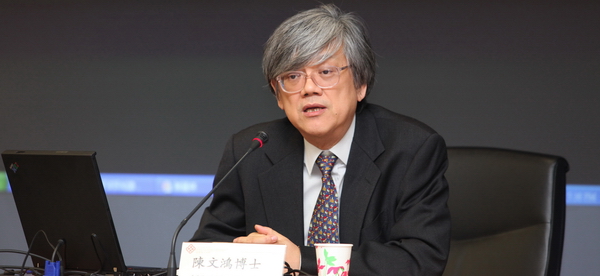|
|
|
|
|
|
|
Vice-premier’s visit highlights importance of HK to nation |
|
|
Vice-premier’s visit highlights importance of HK to nation
|
Vice-Premier Li Keqiang's visit brought a large package of policy gifts to Hong Kong. It shows the importance the central government attaches to the HKSAR. In this issue, we are pleased to have invited Dr Thomas Chan Man-hung, Head of China Business Centre and Director of Public Policy Research Institute at PolyU, to share his views with us. Q1: Out of the 36 policy measures, one third is about finance, including RQFII (Renminbi Qualified Foreign Institutional Investors scheme) and ETFs (Exchange-Traded Funds). Could you share with us your views about these two financial measures that are most talked about? A1: RQFII allows overseas (which is in this case Hong Kong) qualified institutional investors to buy mainland stocks using yuan available in Hong Kong, while ETFs refer to the ability of trading in the mainland of funds linked to Hong Kong stocks. The two measures help to link up stock markets to investors in both Hong Kong and the mainland, opening up more investment channels for the accumulated yuan in Hong Kong that has been building up by offshore yuan businesses and attracting more funds from the mainland for the Hong Kong market. There is a scale limit for RQFII, which is set at 20 billion yuan, while the scale of ETFs has yet to be announced, but one should expect there will be elaborate regulatory controls and procedures laid down by the mainland authorities to avoid excessive outflow of mainland funds and a too large stimuli/shock to the local market. The two measures will spearhead the moves of the mainland government to develop the offshore yuan market in Hong Kong and the bilateral liberalization of capital fund flows between the two Chinese territories. Q2: These will definitely contribute to the further growth and prosperity of the financial economy of Hong Kong, but will it create problems for other sectors and for the economy as a whole? A2: Certainly the central government does not intend to grow the local financial economy at the expense of other sectors. There are other policy measures, and the most important ones are the promises to fully liberalize the mainland service industry to Hong Kong by the end of the 12th Five-year Plan (2011-2015), and get the city involved in the Chinese bilateral and multilateral free trade agreements with other East Asian countries. The former may spell integration of the service industries across the boundary, while the latter will give Hong Kong access to liberalized markets in East Asia. Q3: Vice-Premier Li's package of policies includes cross-border cooperation between Hong Kong and Guangdong and an emphasis on policy experimentation in Guangdong first. What do you think? A3: As Guangdong and in particular the Pearl River Delta region, which is already as large as a national economy by world standards, are closely related to Hong Kong economically, socially, and culturally, the city's service industries could probably benefit better from full market liberalization. The best outcome is not so much a relocation of Hong Kong's services industries across the border (as in the past when the relocation of many industries caused a hollowing out of the local economy). Rather it will be cross-border operation or a simple expansion across the border by many of Hong Kong's service firms. With better communication and transport, and closer economic and social ties, this is a good opportunity to implement cross-border integration of at least some service sector industries. As such it will create employment and other business opportunities to the Hong Kong economy. Q4: What is the impact of the promised participation of Hong Kong in the East Asian free trade community? A4: There will be a far reaching impact. It will help the integrated cross-border production system of Hong Kong firms to gain access to a larger market with basically no import tariff barriers. In addition, with the depreciation of the Hong Kong dollar due to its being pegged to the US dollar, the cost of establishing service centres in Hong Kong by East Asian firms and economies will be lowered, thereby increasing the competitiveness and attractiveness of “Asia’s world city”.
|
